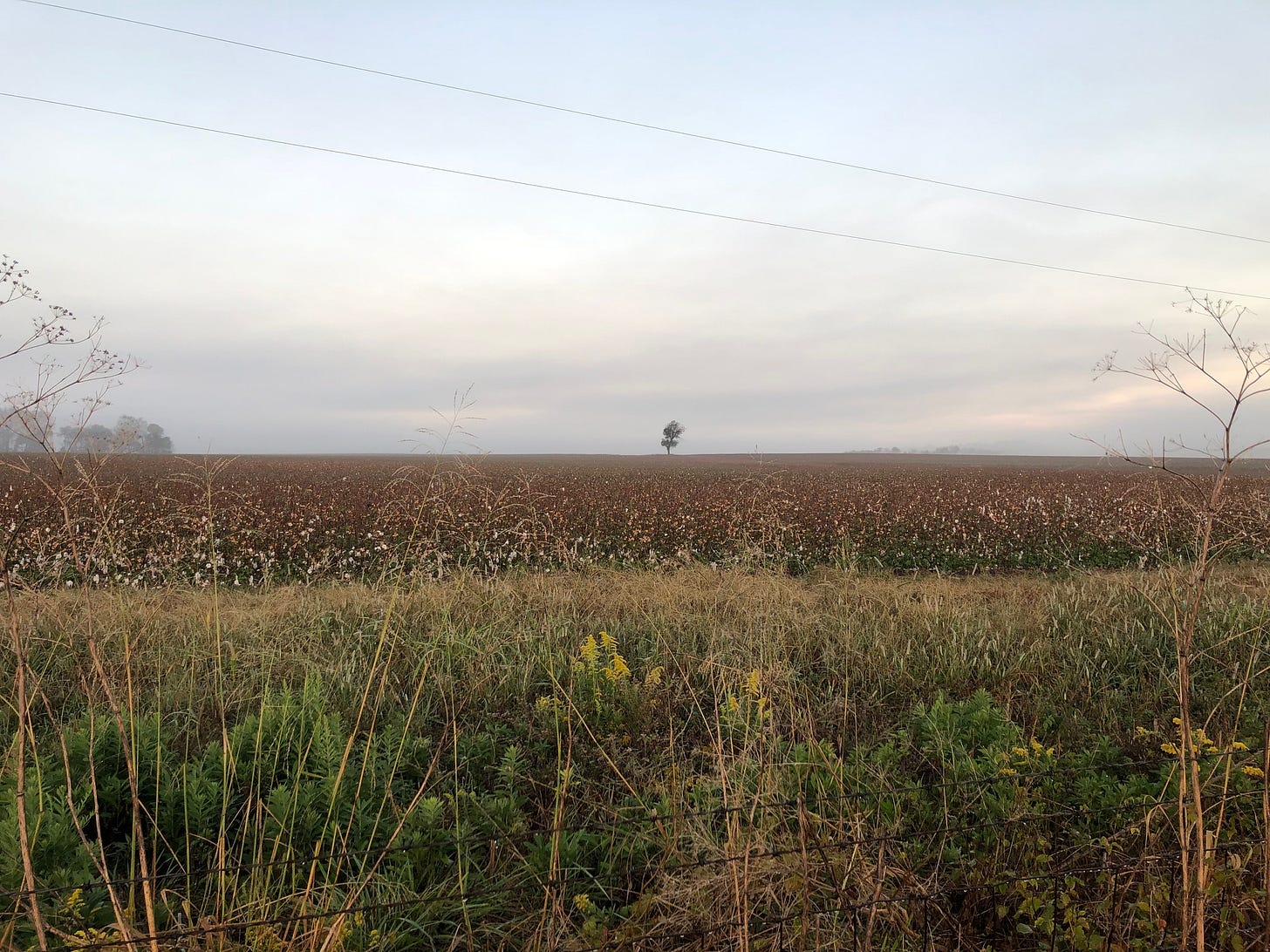Hey, everybody. Free article will be coming soon. If you’re new around here, I occasionally drop a serious piece behind the paywall. This is one I’ve been working on for a while. I honestly have no idea what it will become. A series of essays? A bigger, standalone piece? Thought I’d give you guys an early look at it. I appreciate your subscription, and thank you for reading :) -M
Just off the interstate, a long and lonely two lane road cuts through the Alabama countryside. On one side, farmland: acres and acres of soybeans and cotton, row after row of green plants waiting patiently for the irrigation booms to roll their way and sprinkle them with enough water to survive the merciless sun for another day. On the other side, a turnoff leads into a would-be industrial park. On ahead, the road disappears, swallowed up into a horizon of farmland and trees.
Turning into the industrial park, an abandoned restaurant sits on the corner. It was once a bar and grill, a hopeful venture in a doomed location. There is a bleakness here, where the farmland meets industry. Food and fellowship seem strangely out of place; no one on this road wants to do anything other than leave. The ceiling fans on the front porch of the restaurant somehow catch the breeze and turn absently, ominously, broken blades slowly circling, a muscle memory from a time when someone needed them.
Most of the lots in the park are undeveloped. A few active buildings dot the grid: an ice cream warehouse; a landscape company’s headquarters; a nebulous-looking telecom company, which might or might not be a hive for scammers. And then, at the end of the road, poetically, is us: a nondescript, bland aluminum warehouse with no sign out front. If you didn’t know what you were looking for, you would never notice it.
Bread is a tricky thing. As soon as it is baked, the clock begins to race. Every hour that passes before bread arrives on a store shelf, the chance of failure rises. If you let it sit in a warehouse for too long, it won’t feel fresh when the customers squeeze the loaf, and no one will buy it. If it gets too cold, it becomes hard, and no one will buy it. If it gets too hot, or is put in the sunlight, moisture condenses inside the bag, and mold will grow.
Boxes of cereal can sit in a distribution warehouse for weeks or even months, to no ill effect. Bread is not measured in weeks or even days; the hours are important. For that reason, it cannot be treated like common freight. It requires a separate system, a separate path to make it to the consumer. It requires desperate men.
Keep reading with a 7-day free trial
Subscribe to Evangelical Think Pieces to keep reading this post and get 7 days of free access to the full post archives.




